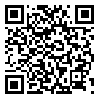Volume 19, Issue 1, Spring
Back to the articles list |
Back to browse issues page
1- Kharazmi univeristy
2- Allameh Tabatabai' university ,mahdi_kazemi@atu.ac.ir
3- Islamic Azad University, Marvdasht Branch
2- Allameh Tabatabai' university ,
3- Islamic Azad University, Marvdasht Branch
Abstract: (159 Views)
The phenomenon of phubbing and its relationship with mental health has recently raised concerns. Due to the lack of studies in this area, the aim of this research was to examine the mediating role of self-control in the relationship between phubbing and mental health among students. This study was fundamental in nature and employed a descriptive-correlational method. The study population included all 14,000 students at Kharazmi University during the 2023-2024 academic year, from which 255 individuals were selected through convenience sampling. The research instruments included the Phubbing General Questionnaire (Chotpitayasunond and Douglas, 2018), the Self-Control Questionnaire (Tangney, Baumeister, and Boone, 2004), and the General Health Questionnaire (Goldberg, 1972). The collected data were analyzed using Pearson correlation tests and structural equation modeling with the help of SPSS 27 and JASP 0.18.3.0 software. The findings indicated a significant negative relationship between phubbing and self-control. Additionally, there was a significant positive relationship between self-control and mental health. Furthermore, a significant negative relationship was found between phubbing and mental health. In this study, the indirect relationship between phubbing and mental health through self-control was significant at the 0.01 level. Based on the results, increasing students' awareness of the negative impacts of phubbing is crucial.
Send email to the article author
| Rights and permissions | |
 | This work is licensed under a Creative Commons Attribution-NonCommercial 4.0 International License. |




